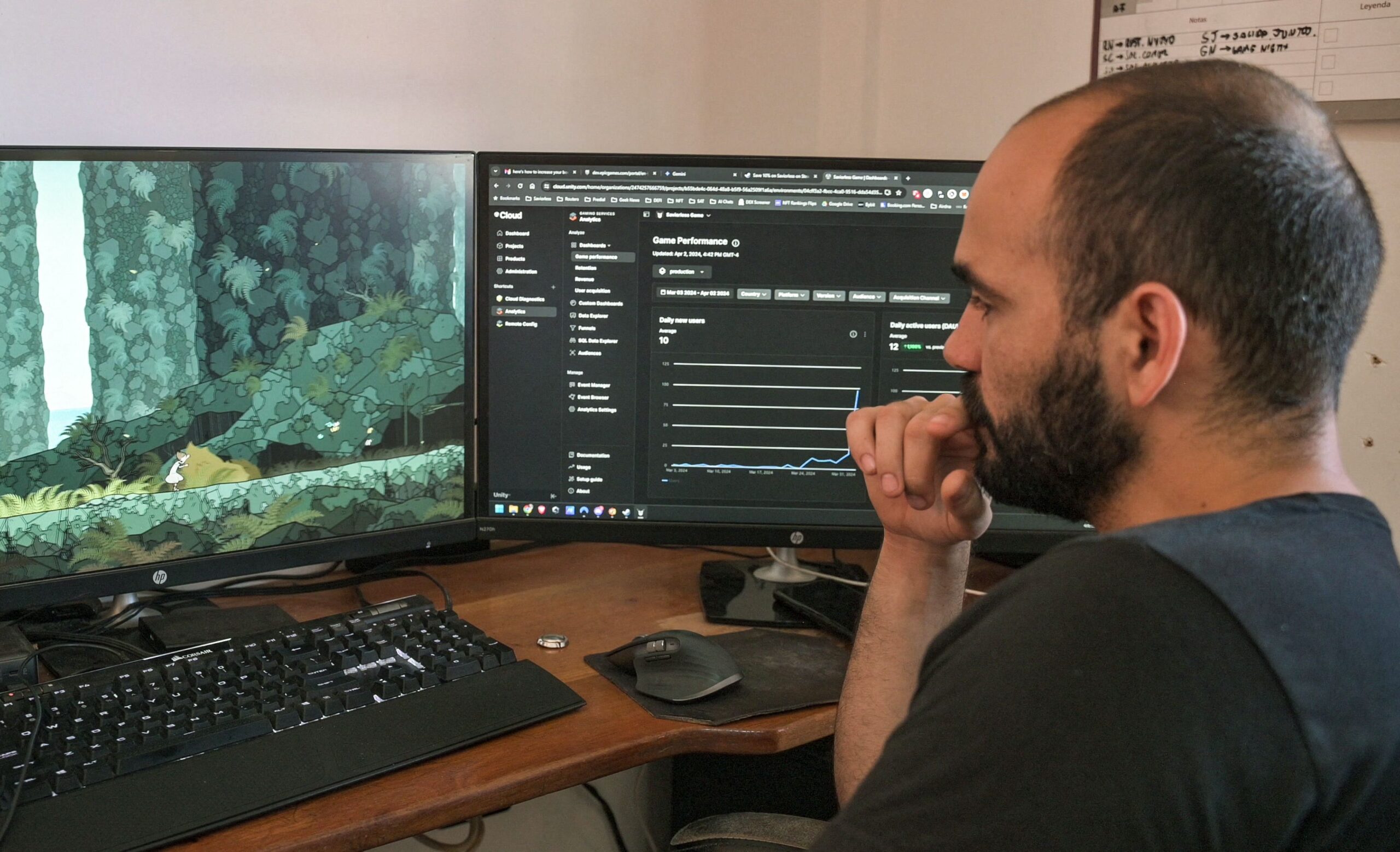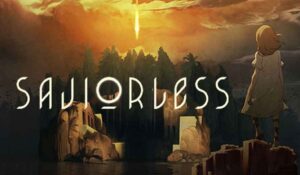
Cubans release first video game abroad

‘SOMETHING CRAZY ACCOMPLISHED’ Game programmer David Darias checks the screen during the April 2 release of “Saviorless,” the first Cuban game on international video platforms, in Havana. —AFP
HAVANA—Cuba’s first independent video game launched internationally this week after its creators leveled up from an epic real-world quest: battling sanctions, wrestling with internet connection demons and forging through economic turmoil.
“Saviorless” is a 2D game with hand-drawn illustrations that invites players into a dark fantasy world to unravel the mystery of the “Islands of Smiles” by fighting monsters and solving puzzles.
Much like their characters, creators Josuhe Pagliery and David Darias had to overcome a multitude of obstacles to achieve what at times appeared impossible on the Communist island.
“The project arose at a historic moment,” said Pagliery, 43, a graphic artist who first dreamed up the idea in 2016, at a time when Cuba and the United States saw a thaw in relations under the presidency of Barack Obama.
The endeavor got support from an American foundation and crowdfunding, and Pagliery even traveled to the United States where his dream of creating an independent Cuban video game was covered by the media.
At the same time, the internet in Cuba became available on cell phones in 2018—it had only been available in public places at high prices.
This dramatically lowered the cost of connecting. But after this “bright period” came “the perfect storm to cancel the project,” said Pagliery.
Sanctions
Political tensions returned under the US presidency of Donald Trump, who reinforced economic sanctions.
The initial programmer tasked with developing the game emigrated, and Cuba plunged into its worst economic crisis in decades after the pandemic, marked by shortages and electricity blackouts.
“Instability is what characterized this project throughout its development,” said Darias, 35, a former professor at the University of Havana who now works from home as an independent programmer.
Financial constraints, a spat over the game’s name, and technological challenges all provided obstacles in an island-nation which has been under US embargo since 1962.
Their software did not always work on a slow internet connection, they had to connect via VPN (virtual private network) to use programs banned due to sanctions, and backups were complicated by power outages.
“The worst thing, which happened twice, was when we lost not only the work we had just done, but also that from the whole week,” with the electricity cut during a backup, said Darias.
After four years of work, with their finances bled dry and hundreds of letters to international publishers that went unanswered, the two friends decided to do a “free demo so that there was at least a trace of all our efforts,” said Pagliery.
Conquering the dream![]()
It was then that Dear Villagers, a game publisher based in the south of France, spotted the Cubans’ work and decided to support them so that they may “accomplish their dream,” company founder Francis Ingrand told Agence France-Presse (AFP).
“We have always had this appetite for original projects, we loved the artistic touch and the game spoke to us,” he added, as he praised the tenacity of the two developers who “accomplished something crazy.”
Among Cuba’s community of gamers, the project became somewhat of a “legend” due to how long it took to realize, said Luis Antonio Noa, 27, who runs a YouTube channel dedicated to gaming.
His partner in the channel, Carlos Oscar Anaya, 29, said Cuban gamers—who mostly play free games, pirated games and those produced locally—are used to Cuban video games being “more educational.”
“‘Saviorless’ [is] a game with a darker plot that only seeks to entertain,” he said, emphasizing its “graphic and musical beauty.”
He now hopes it will “reach a wide audience and put Cuba on the video game map” around the world.


